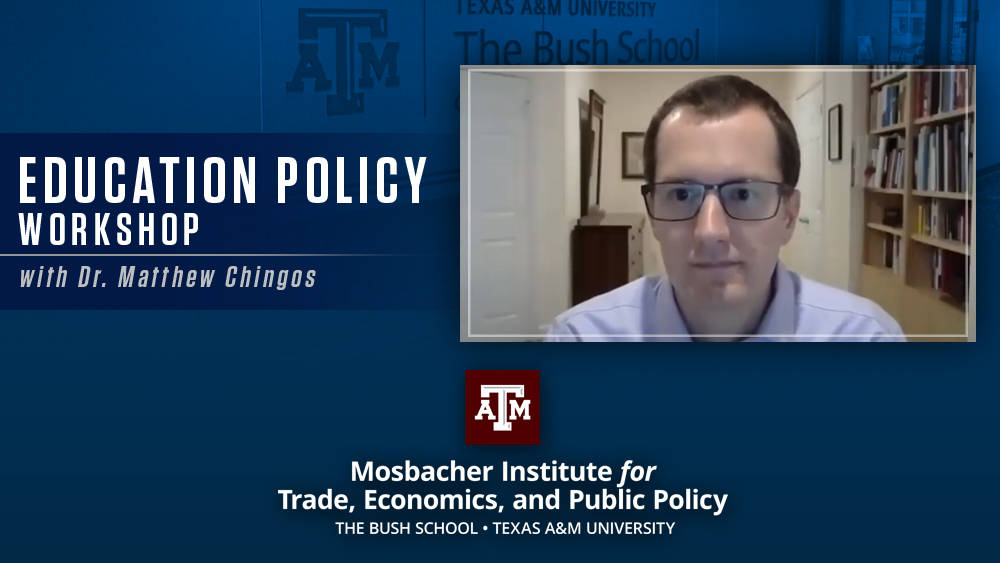
On March 4, 2021, the Mosbacher Institute for Trade, Economics, and Public Policy at the Bush School of Government and Public Service at Texas A&M hosted an Education Policy Workshop featuring Dr. Matthew Chingos discussing the policy implications of student loan debt. Chingos currently leads a team of scholars at the Urban Institute who undertake policy-relevant research on issues from prekindergarten through postsecondary education.
With $1.6 trillion in federally held student loan debt, Chingos described the complexities of the expanding student loan crisis and provided policy recommendations to deal it. A key point Chingos made is that student loans are not all the same. They are not a single monolithic problem in need of a single one-size-fits-all solution. For example, the amount of borrowing by graduate students is more than five times higher than by undergraduates, yet graduate default rates are much lower. He also noted that while the overall amount of debt has gone up, the amount of new loans being made each year has actually gone down, signaling that students are repaying their loans more slowly than today’s students are taking out new loans.
When asked about policy recommendations, Chingos indicated that the student loan system should be simple to navigate and administer, have consistent forward- and backward-looking policies, keep loans clearly differentiated from grants, reduce delinquency and default, and mitigate racially disparate impacts. To achieve these principles, Chingos recommended income driven repayment, withholding payments with taxes, and tying the repayment period to the amount of money borrowed.
At one point, Chingos argued that “policymakers should adopt forward-looking policies that affect future students and backward-looking policies that affect previous students, and these should make sense together. For example, maybe we want to forgive the debt of students who attended low-value institutions and got ripped off. At the same time, if we are going to do that, we should stop making loans to students to go to those same institutions. We shouldn’t do just one and not the other. We shouldn’t forgive debt with one hand and then go back to making the same loans on the same terms with the other hand.”
During the question-and-answer segment facilitated by Dr. Lori Taylor, Chingos answered questions about President Biden’s student loan policies; the varying student debt implications for public, for-profit, and nonprofit institutions; COVID-19’s impact on student loan debt; and other fairness issues. When asked which of all his policy recommendations he would implement first, Chingos said the most important recommendation is letting people pay their loans based on their income and having that happen automatically.
The Mosbacher Institute is grateful to Dr. Chingos for taking the time to share his insights on a topic of great importance to the graduate students and faculty of the Bush School.
You can view Policy Implications of Student Loan Debt on the Bush School YouTube channel.

